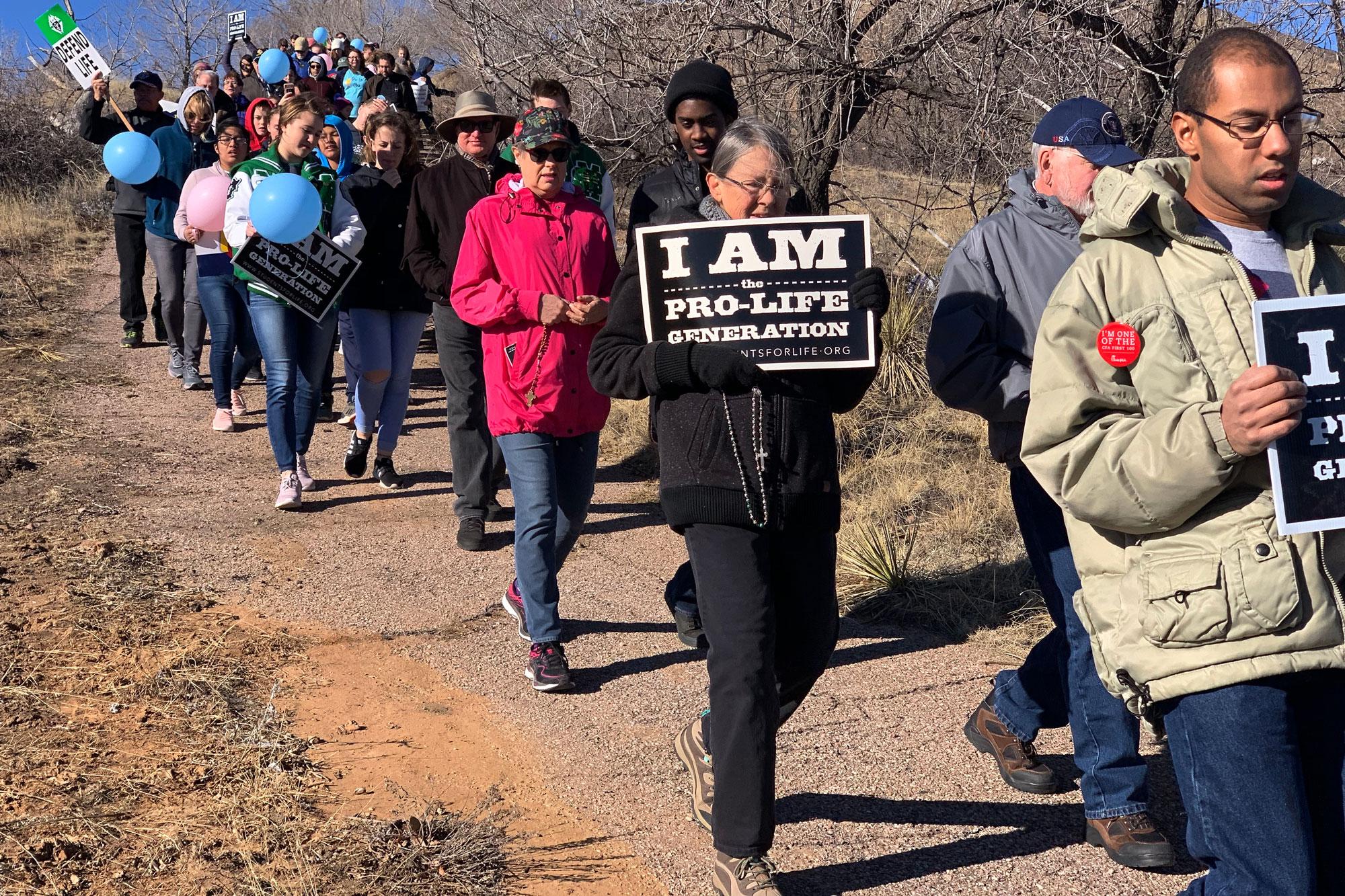
Proposition 115, which would have banned abortion after 22 weeks of gestation, has failed, according to the Associated Press. According to the ballots counted by 9:45 p.m., 59.4 percent of Colorado voters rejected the measure.
"I'm feeling incredibly relieved," said Kristina Tocce, vice president and medical director of Planned Parenthood of the Rocky Mountains. "Relieved for patients and incredibly proud of Colorado for seeing Proposition 115 for what it was: a cruel one-size-fits-all ban on abortion that would have harmed patients and families."
It’s the fourth time since 2008 that voters have been asked to vote on an abortion ballot measure. Proposition 115 would have made exceptions in cases where the life of the mother is endangered, but not in cases of rape, incest or a fatal fetal diagnosis. Doctors attempting to perform an abortion after the cut-off date would face misdemeanor charges and at least a three-year suspension of their license.
"We are disappointed. This isn't how we hoped tonight would go," said Nicole Hunt, a Colorado lawyer and co-founder of the Help Mom Save Baby, an issue committee that fought to pass Prop 115.
Hunt delivered her first child at 27 weeks after a life-threatening case of pre-eclampsia. She believes that there are "life-affirming" alternatives to abortion even in cases where there is a fetal abnormality or other complications.
"To know that there's other options out there besides abortion options that would allow women to grieve and to celebrate the life of a lost loved one, I think has been really important," she said.
Prior ballot initiatives asked Colorado voters to define fetal personhood. Each time, Coloradans voted no. But, across the country, more abortion restrictions and bans have been passed in the U.S. since 2010 than in any other period since Roe v. Wade was decided in 1973.
Recent polling indicated a narrow split among voters on the abortion ban.
"I definitely had moments where I was extremely nervous that we perhaps not done enough to educate Coloradans," Tocce said. "Over the past few months, I've been amazed by the effort that Coloradans have put into taking a really deep dive into learning about abortion later in pregnancy."
Opponents to the measure fear that the appointment of Justice Amy Coney Barrett, who filled abortion rights proponent Justice Ruth Bader Ginsburg’s vacant seat, could result in Roe v. Wade being overturned allowing abortion bans to be more restrictive.
Bans have continued to be passed despite declining abortion rates across the country. In Colorado, abortions fell 10 percent between 2014 and 2017. That drop was attributed to better access to birth control.
Colorado is one of seven states that does not prohibit abortion at any point during a pregnancy and was the first state to decriminalize abortion, in 1967 — six years before Roe v. Wade. It’s also a destination for pregnant women seeking abortion care who live in states with tighter restrictions. During the coronavirus pandemic, states like Texas severely limited abortion access driving some women to neighboring states including Colorado.
"It is more urgent than ever, that we continue to show up to protect abortion access in our region," Tocce said. "Not just for our patients in Colorado, but for patients who are forced to travel here because access is not possible in their home states."
Late abortion is somewhat rare in the U.S. -- just over 1 percent occur after 21 weeks, while the vast majority, 89 percent, happen in the first trimester, according to research by the Guttmacher Institute, which supports abortion access.
The group behind Proposition 115, Due Date Too Late, argues a fetus could survive outside the womb at the 22-week mark, and say the ban would place a “reasonable restriction” on abortion and that Colorado should fall in line with the 24 other states that restrict some abortions at a specific gestational age.
"These are common-sense restrictions on abortion that are happening around the country already. To the over-a-million people who did vote to see this measure passed, not to be discouraged, that Colorado is trending in the right direction," Hunt said. "This is about educating and about advocating, and we won't be giving up."
Women who oppose Proposition 115, like Christina Taylor, believe that decisions about abortion and reproductive healthcare should be left to a woman and her doctor. Taylor was 20 weeks pregnant with her third child in May 2017 when she discovered her fetus was missing kidneys, a bladder and amniotic fluid. She decided to have an abortion at 21 weeks and one day.
Groups including the American College of Obstetricians & Gynecologists and the Colorado Medical Society opposed Proposition 115 arguing that it would interfere with the doctor-patient relationship and complicate difficult medical decisions.
The proposition almost didn’t make it onto the ballot, in part due to the pandemic. Ultimately, the organizers were able to collect the additional signatures required to get the measure on the ballot.
"This is an issue that was eye opening for a lot of the people in Colorado, and they're going to keep discussing this for years to come," said Giuliana Day, a co-sponsor of Proposition 115. "So in that sense, it was just a very successful campaign and just raising awareness about this issue, that's what was important because it's a human rights issue."
Day said she has plans for future initiatives and does not intend to give up on her community.
"We are a civilized society, and we are compassionate," she said. "We are loving people. And this is not right. We shouldn't tolerate something like this."








